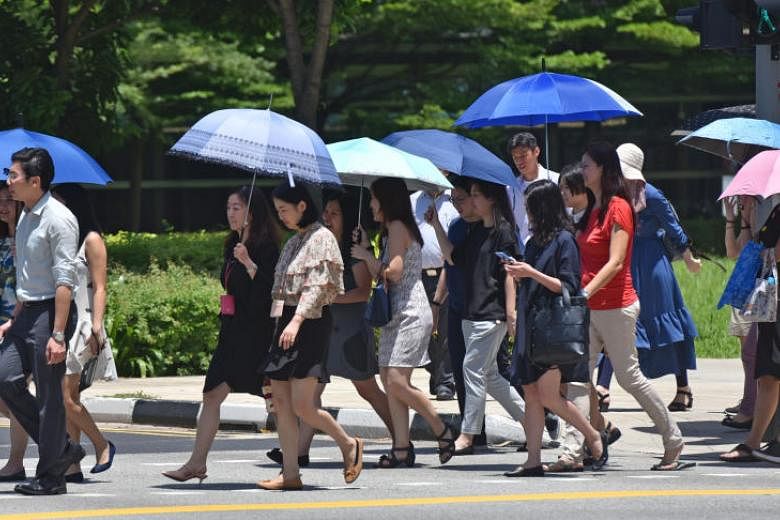SINGAPORE - The changes to the harassment law to afford swifter and greater protection to victims were welcomed by MPs in Parliament on Tuesday (May 7), but some highlighted the need to shield young adults and workers even more from harassment.
Of particular concern were victims aged below 21 because they cannot apply for protection orders under the Protection from Harassment Act (Poha) without a guardian's help, said Nominated MP Anthea Ong, as she urged the House to lower the age to 16 years.
Ms Ong was among four MPs who spoke on the need to further secure specific groups of victims during the parliamentary debate on proposed changes to Poha.
Citing the case of a 20-year-old woman who was unwilling to go to court for help with a blackmail case as it would involve her parents, she said such concerns are echoed by many.
"This can be a deterrent from seeking legal redress for intimate partner violence and sexual harassment, even if social service agencies or law firms are involved," she added.
In response, Senior Minister of State for Law Edwin Tong said the authorities recognise their concern, which is why the new law allows third parties, like voluntary welfare organisations, to act on behalf of the victim.
Mr Murali Pillai (Bukit Batok) asked if employers could apply for civil remedies under Poha, like protection orders, to protect their employees from harassers as companies have a duty to provide a safe working environment for their workers.
Yes, they can do it, said Mr Tong, and as the company is an entity, such protection orders would extend to their employees.
Many of the 13 MPs who debated the Protection from Harassment Bill recounted the pain and terror of victims.
Ms Lee Bee Wah (Nee Soon GRC) spoke about a resident who was incessantly hounded by a former boss who spread her contact details among her ex-colleagues.
In another workplace harassment, labour MP Patrick Tay (West Coast GRC) related how a union member's colleague, who bore a grudge against her, spread "malicious untruths" about her.
Another key issue during the debate was the new law against doxxing, the act of publishing personal details of a person with the intent to cause harassment, alarm or distress.
Most MPs support the move against it, although some asked for clearer guidelines on what acts would be deemed doxxing.
Mr Tong said whether an offence is committed ultimately hinges on "the ingredient" of the publisher's intention or knowledge based on objective circumstances.
"The law provides in the Bill for a defence of reasonableness. This means that if a person can prove that his conduct was reasonable he would not be guilty of the offence," he added.
Workers' Party chief Pritam Singh (Aljunied GRC), referring to the protection that individuals and entities can get for falsehoods, asked why the Government cannot be taken to task for falsehoods as it is not considered an "entity".
There have been instances in the past where Governments have communicated falsehoods, he noted. "The decision to create an exemption for the Government such that it cannot be sued for perpetuating a falsehood is, in my view, a glaring omission and a lost opportunity at winning the trust of the public," Mr Singh said.
Mr Tong, however, said it is in accordance with the general position in law, which states the Government is not bound by legislation unless it expressly provides for it to be so.
"The Government has taken a view that it will not avail itself on remedies under Poha, and likewise it would not be subject to the provisions under Poha," he added, noting that government officers can be held accountable in usual forums, like in Parliament.


